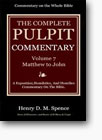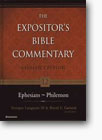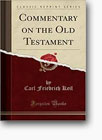Endless Torture Unbiblical
by Steve Jones
Many Christians consider the doctrine of endless torture a non-negotiable tenet. Many sincere Bible teachers insist we believe in a God who torments the unconverted forever. At the same time, we are told that God does not delight in the death of the wicked, that He is full of tender mercies.
Is this the consistent doctrine of Scripture regarding final punishment? Will God, whose name is love (1 John 4:7), keep most of mankind alive so that He can perpetually burn them with flames? Certainly we have a right to ask the question, since Paul tells us to "test all things" (1 Thess. 5:21).
We would concur that certain isolated texts may suggest such a punishment for the lost. These passages are very small in number. The general tenor of Scripture, on the other hand, seems to suggest something different. Consistently, we read that the wicked will finally die, perish, be cut off, slain, devoured and destroyed.
Old Testament Teaching
One of the great difficulties with the popular view of final punishment or hell is the profound silence of the Old Testament. Everywhere we find God warning sinners to repent. He threatens judgment for disobedience and carries it out on many occasions. But the idea of endless torture after death is extremely obscure.
God threatened Adam and Eve with death as a punishment for their sin. This He defined, not as an eternity of pain, but as a return to the dust of the earth (Gen. 3:19). Many Bible teachers will point out that God said "in the day you eat of it [the tree of knowledge of good and evil] you shall die" (Gen. 2:17). Their reasoning is that because the pair did not drop dead the same day they sinned, the "death" must be of a different kind.
This does not follow. The Hebrews often spoke in an anticipative or proleptic sense. That which is certain to happen is spoken of as a present reality. For an example, when Abimelech took Abraham's wife, God said to him, "Behold, you are a dead man" (Gen. 20:3). In other words, death was imminent, though not literally present.
The absence of explicit instructions regarding the punishment due Adam and Eve - and their posterity - is bewildering in light of the common view. Did God send sinners to hell for thousands of years before He ever disclosed this awful fact? We wonder how God could have warned Israel in precise detail about plagues, droughts and other punishments without saying a word about the worst punishment of all. Read the penalties for disobedience to the Mosaic Law (Deut. 28:15-68). Where are the warnings of hellfire in a future life?
Not a word came from the lips of Abraham, Isaac or Jacob about an endless hell. Likewise, Moses, Joshua, the Judges of Israel and the Psalmists are silent on the matter. The prophets of Israel and Judah, though they say much of God's wrath, fail to teach anything about torments after death. Jeremiah does mention "the valley of the son of Himmon" (Jer. 7:32), which any Bible dictionary will identify as the Gehenna or hell spoken of by Jesus. But in this text, the prophet calls this place "the Valley of Slaughter." Anyone can see that "slaughter" is something entirely different than an endless existence in agony.
Isaiah mentions "everlasting burnings" in his prophecy (Isa. 33:14). But, amazingly, he calls this judgment "the devouring fire." This contradicts what many Christians teach about hell. Sinners are supposed to writhe in the flames without ever being devoured. But Isaiah denies it. He also says that no one can dwell in the everlasting burnings, despite the view that hell is "the eternal abode of sinners."
The many occurances of the word "hell" in the King James Version of the Old Testament are the result of faulty translating. Modern versions of Scripture have corrected the error. They seldom, if ever, render the Hebrew word sheol in this way. Instead, we read such words as "the pit," "the grave" or "death." The same is true of the New Testament word hades, which should never have been translated "hell" in the first place. Check any Bible dictionary.
Many times, the prophets of Israel mention fire in connection with divine judgment. But they always present fire as an agent of destruction, not torment in a future life. Zephaniah, for example, said, "In the fire of his jealous wrath, all the earth shall be consumed" (Zeph. 1:18). Malachi said, "the day comes, burning like an oven, when all the arrogant and all evildoers will be stubble; the day that comes shall burn them up, says the Lord of Hosts, so that it will leave them neither root nor branch" (Mal. 4:1). He goes on to say that the wicked would be reduced to ashes under the feet of the righteous (verses 2,3).
The Teaching of Jesus
Jesus spoke of a final judgment in which God would "destroy both soul and body in hell" (Matt. 10:28). This text is so ruinous to the common view that Bible teachers have assigned a theological meaning to the word "destroy." Many who claim to "take the Bible literally" escape the obvious meaning here by re-defining "destroy" as eternal, conscious separation from God. But the Bible nowhere else uses "destroy" in such a self-contradictory manner.
The word "hell" is translated from the word Gehenna, seldom used in the Scripture. Once the sight of idolatrous worship, it was a garbage dump outside Jerusalem where the bodies of executed criminals were cast. Worms fed on the carcasses. The imagery was familiar to the Jews. When Jesus said that the wicked would be destroyed in Gehenna, everyone knew what he meant.
In Mark 9:48, Jesus speaks of a place where "their worm does not die, and the fire is not quenched." But this does not prove endless torments. The passage is actually a quote from Isaiah 66:24: "And they shall go forth and look on the dead bodies of the men that have rebelled against me; for their worm shall not die, their fire shall not be quenched, and they shall be an abhorrence to all flesh." The fire and worms are feeding on corpses, not "never-dying souls."
Jesus does speak of "eternal punishment" in Matthew 25:48. But we would affirm that the destruction of evildoers in divine wrath qualifies in every way as an eternal punishment. The effects of such a punishment last forever, as long as the eternal life enjoyed by the righteous. The wicked will be extinct, never to rise again. The punishment is eternal.
Some may object that we are playing games with words. But the authors of Scripture often use "eternal" to modify an activity that takes place in limited time, as long as the effects are ongoing. For example, the Bible uses the term "eternal redemption" to signify a once-for-all event with ongoing effects. Jesus Christ is not eternally redeeming his people. He did that in time, on the cross. But the effects of his redemption stretch into eternity.
Jesus often informed his hearers that unbelievers will perish in the judgment (Luke 13:1-5; John 3:16) and not see life (John 3:36). They would be gathered and burned, as men burn withered sticks (John 15:6). The meanings of these words were evident to the common people of his day.
Many will appeal to the story of the Rich Man and Lazarus in Luke 16 as proof of eternal torment. But the story is admitted on all hands as non-literal in many respects. Few believe that the story is an accurate account of what goes on after death. The Hebrew imagery of the dead carrying on conversations is not unique (Isa. 14:3-10). Furthermore, the story does not deal with the final punishment at all. It is a pre-resurrection account (verses 27, 28) and does not address the duration of punishment after the Judgment Day.
Apostolic Teaching
The apostles taught the same view. Read the evangelistic sermons in the Book of Acts and see if they speak a word about eternal torments. Peter said, "every soul that does not listen to that prophet [Jesus] shall be destroyed from the people" (Acts 3:23). Destruction, not endless suffering, is the end of God's Judgment.
The epistles take up the same idea. Paul, who "did not shrink from declaring to you anything that was profitable," (Acts 20:20) warns no one about eternal torment. On the contrary, he writes of those whose "end is destruction" (Phil. 3:19) and of the ungodly who will face "eternal destruction" at the coming of the Lord (2 Thes. 1:8,9).
"The wages of sin," says Paul, "is death" (Rom. 6:23). He does not tell his readers, "the wages of sin is to burn in hell without dying." Again, the apostle says that "if you live according to the flesh, you will die" (Rom. 8:13). If eternal torment is true, why would he cloak the doctrine in ambiguity - especially considering the gravity of the matter?
Peter also teaches the destruction of the wicked on Judgment Day. He likens their fate unto the incineration of Sodom and Gomorrah (2 Pet. 2:6,7). James speaks of the unrighteous rich who will be led off to slaughter and consumed by their wealth (James 5:1-5).
In Revelation 14:10,11, we read that God torments those who worship the beast, adding "the smoke of their torments goes up forever and ever." But this is language borrowed from the destruction of Edom (Isa. 34:10), it has nothing to do with misery in a future life. There is nothing in the text that demands such a thing.
The testimony of both the testaments is conclusive: the wicked will most surely perish. "The Lord preserves all who love him; but all the wicked will he destroy" (Psa. 145:20).











Comments (1)
What about Rev 14:11b and they have no respite (no pause, no intermission, no rest, no peace) day or night—these who pay homage to the beast and to his image and whoever receives the stamp of his name upon him.
How long is the torment for the beast and the false prophet? (I am assuming they are humans) Rev 20:10 And the devil who had deceived them was hurled into the lake of fire and burning brimstone (sulfur), where the beast (Antichrist) and false prophet are also; and they will be tormented day and night, forever and ever.